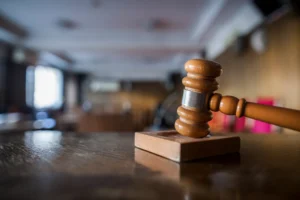Supreme Court Rejects CenCES Suit Challenging Chief Justice’s Suspension in 4–1 Ruling

In a significant legal ruling, the Supreme Court of Ghana has, by a 4–1 majority decision, dismissed a lawsuit filed by the Centre for Citizenship, Constitutional and Electoral Systems (CenCES), which sought to overturn President John Mahama’s suspension of Chief Justice Gertrude Araba Esaaba Sackey Torkornoo and stop the work of a committee set up to investigate her conduct.
The five-member bench hearing the matter included Justices Paul Baffoe-Bonnie, who presided over the case, Issifu Omoro Tanko Amadu, Yonny Kulendi, Henry Anthony Kwofie, and Yaw Asare Darko. Justice Asare Darko stood alone in dissent, with the other four judges supporting the dismissal of CenCES’ claims.
CenCES, a civil society organisation operating as a company limited by guarantee, filed its legal action against three key figures: the Attorney General (1st Defendant), the Chief Justice (2nd Defendant), and Supreme Court Justice Gabriel Scott Pwamang (3rd Defendant), who also serves as chairperson of the committee established by the President to investigate allegations against the Chief Justice.
The group argued that the President had overstepped his constitutional authority by suspending the Chief Justice without properly following procedures outlined in Article 146 of the 1992 Constitution. CenCES contended that the determination of a prima facie case, which triggered the formation of the investigative committee, was improperly conducted. According to their suit, this step was communicated by the Secretary to the President rather than through a process led by an independent legal body, making it unlawful.
Filed on 15 May 2025, CenCES’ writ asserted that several constitutional provisions had been breached, including those relating to judicial independence, equal protection under the law, and the right to a fair hearing.
The organisation requested seven specific reliefs, including a declaration that the President’s suspension of the Chief Justice was unconstitutional, violating Articles 125 and 127, which safeguard the independence of the judiciary. They further sought the court’s intervention to halt the committee’s proceedings and to nullify the President’s suspension order issued on 22 April 2025.
CenCES also raised concerns over a perceived conflict of interest, urging the court to bar the Chief Justice from participating in any aspect of the process, arguing that her continued involvement could compromise fairness.
Despite these arguments, the Supreme Court upheld the President’s actions, ruling that the suspension and establishment of the investigative committee were consistent with constitutional procedures. The court’s majority decision means that the inquiry into the Chief Justice’s conduct will proceed as planned.
This ruling marks a pivotal moment in the unfolding legal and political drama surrounding the judiciary’s top office, and it reaffirms the role of the executive in initiating investigations into judicial misconduct, provided constitutional guidelines are followed.
Parallel Case Ongoing
In a related development, the Supreme Court has begun hearing a second case on the same matter. This time, a private citizen, Theodore Kofi Atta-Quartey, has filed a separate suit also challenging the removal process.
Atta-Quartey is seeking an interlocutory injunction to freeze the activities of the investigative committee until his case is resolved. He argues that proceeding with the investigation before the court determines the legality of the process would be prejudicial and could violate the rights of the Chief Justice.
Legal Affairs Correspondent Latif Iddrisu of JoyNews reports that this second case echoes many of the constitutional issues raised in the CenCES suit, indicating that the controversy surrounding the Chief Justice’s suspension is far from over.
As the legal battle continues, the judiciary faces a critical test of its independence and integrity in a case that has drawn nationwide attention to the limits of executive power and the protection of constitutional norms.






